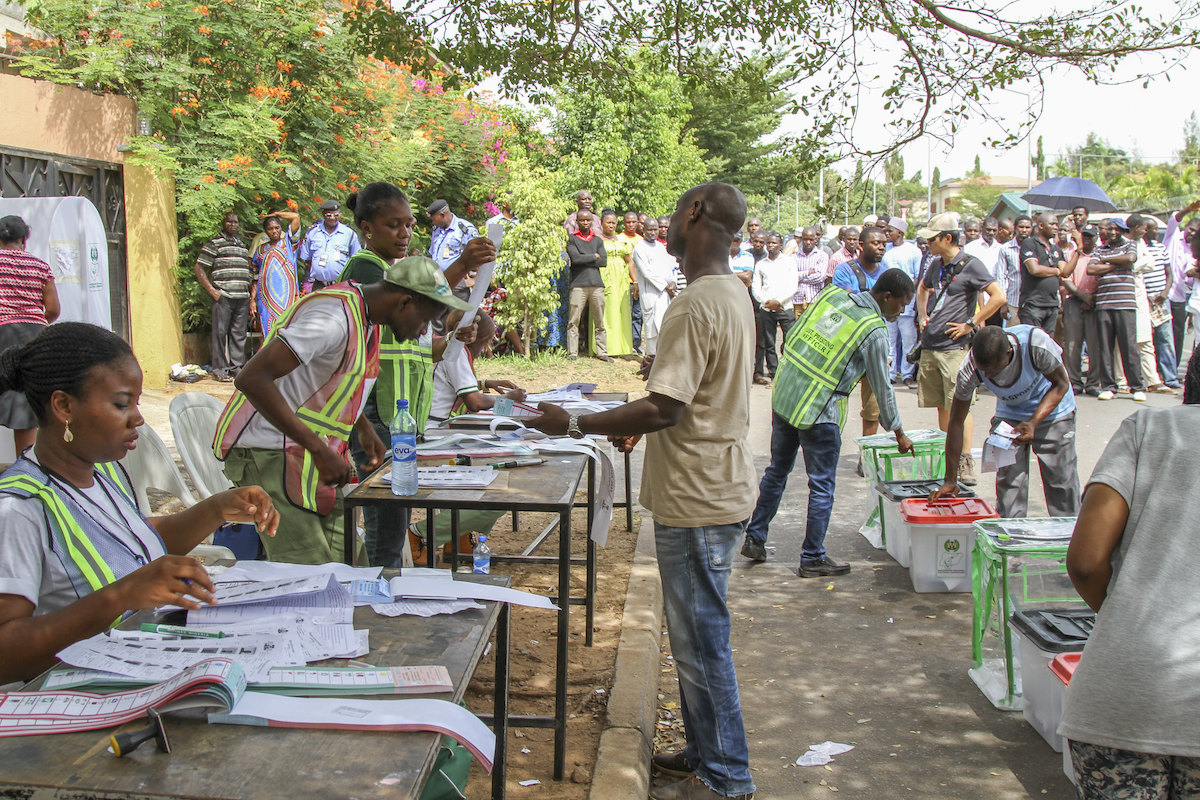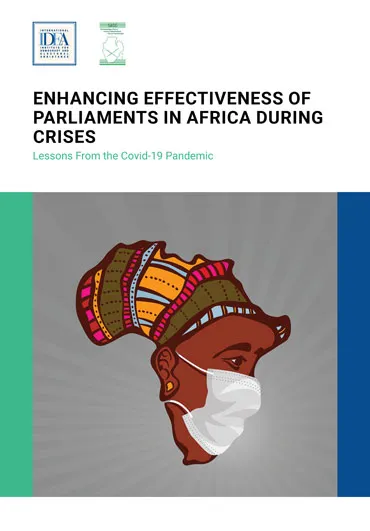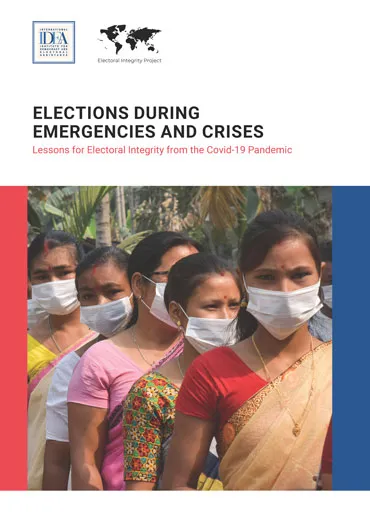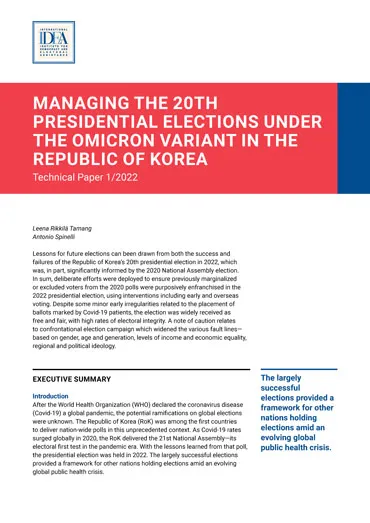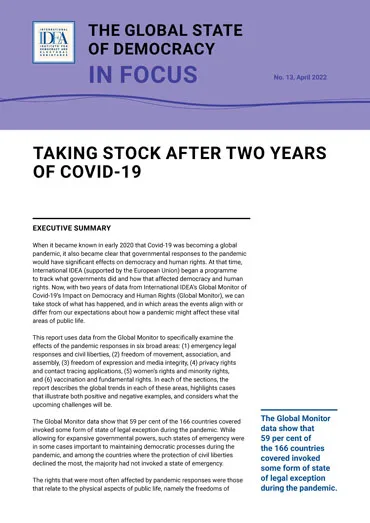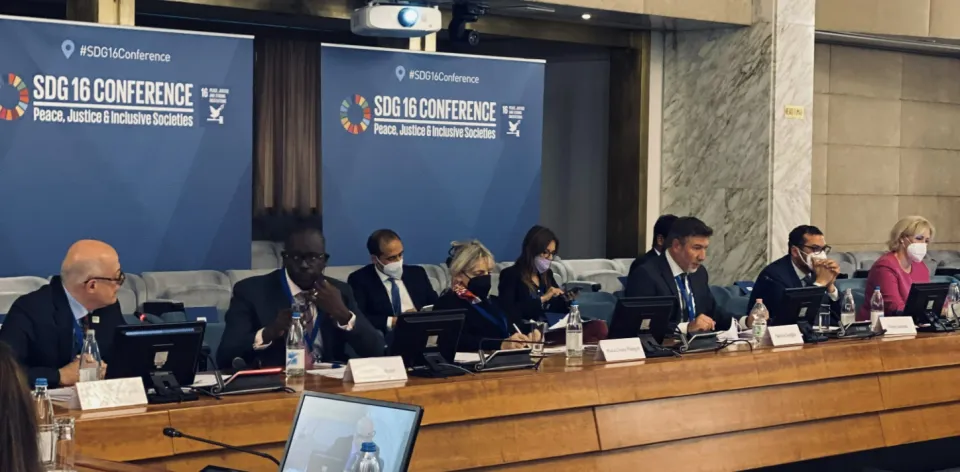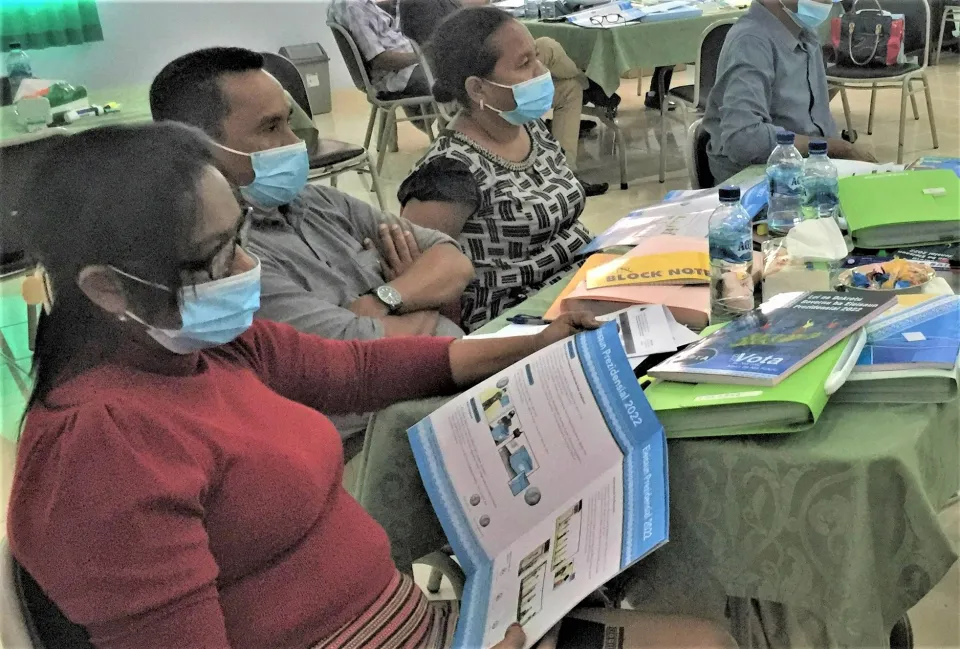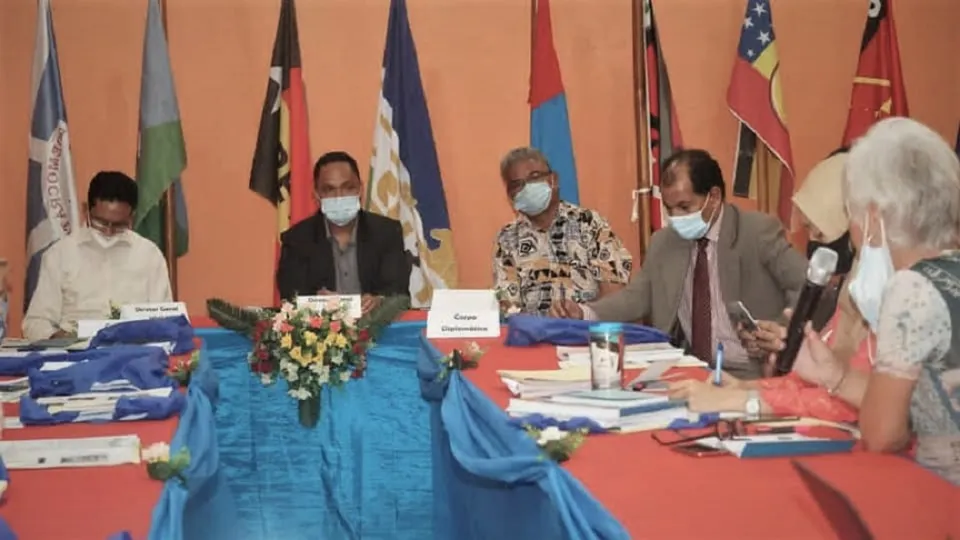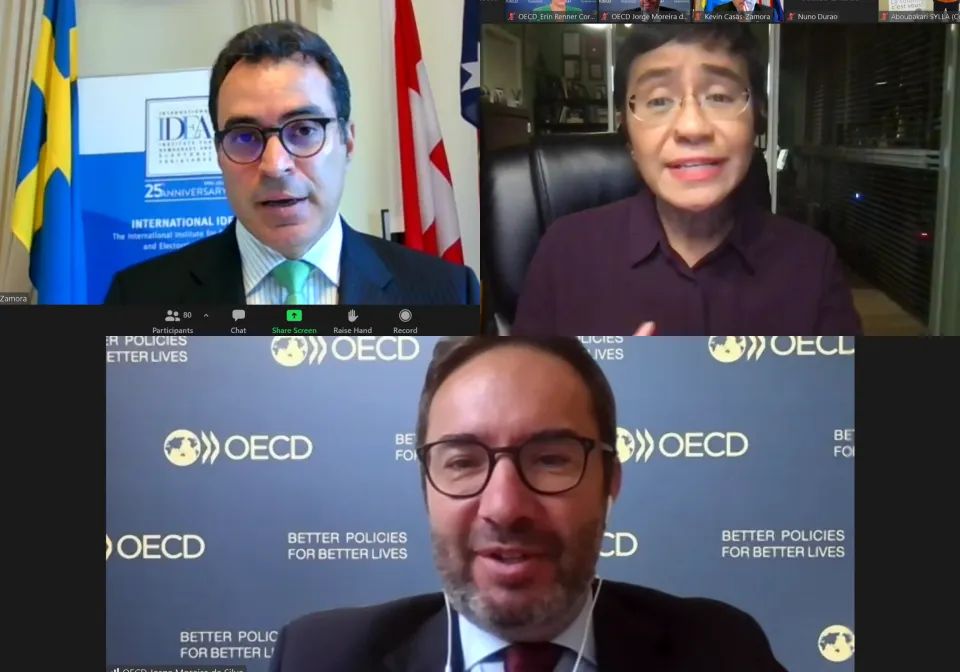Retaining Integrity in Pandemic Elections: The Case of New Zealand’s 2020 General Election
New Zealand maintains a robust, long-established democratic system in the South Pacific. It enjoys a reputation for integrity and is generally ranked among the world’s top countries in Transparency International’s Corruption Perceptions Index. The outbreak of Covid-19 and the consequent first postponement of an election since World War II failed to mar that status.
This case study looks at the complexities faced in the delivery of New Zealand’s 2020 general election, at a time in which the pandemic had reached the country but was still predominantly contained. It also examines the impact of the pandemic on key aspects and operations of the 2020 general election, including on campaigning, the mobilization of the temporary election workforce, the cost of the election, the voting methods, levels of interagency cooperation and voter participation, providing recommendations based on lessons learned to be considered for future elections.
Details
Contents
A complex environment in the lead up to the 2020 general election
Election dates and complexity
Impacts on campaigning
Covid-19 pivot for the temporary election workforce
Financial impacts
Voting methods employed
Special measures introduced for the 2020 general election
Significant enhancements over the past decade
Interagency cooperation
Undeterred voter participation
Looking forward
References
Give us feedback
Do you have a question or feedback about this publication? Leave us your feedback, and we’ll get back to you
Send feedbackRetaining Integrity in Pandemic Elections: The Case of New Zealand’s 2020 General Election
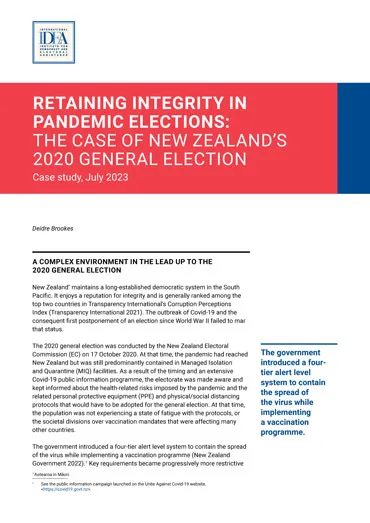
| Total views | 1809 |
|---|---|
| Downloads | 57 |
| Rating |
Give us feedback
Do you have a question or feedback about this publication? Leave us your feedback, and we’ll get back to you
Send feedback